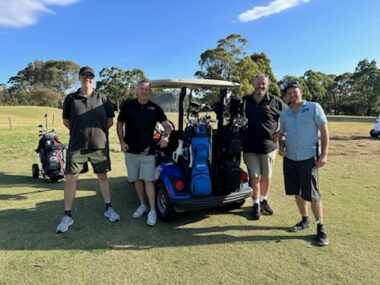Brands stand to benefit from Baby Boomer consumers, yet marketing tactics still seem to be targeted towards generations with less cash. RMIT experts say older people businesses could benefit from being more inclusive in their marketing.
Topics: marketing, diversity, Baby Boomers, consumers, stereotypes, ageism
Foula Kopanidis, Associate Professor, Marketing
“In Australia, there are 5.6 million Baby Boomers commanding a substantial 21.5% slice of the national population.
“With an average accumulated net worth of $381,100 per person, they own more than half of Australia’s national wealth – and they like to spend it.
“Baby Boomers should be the prime target market for brands, yet many ignore the great potential of this consumer with only 5% of advertising expenditure in Australia spent on this demographic.
“Brands reduce this consumer group down to a specific stereotype, one that does not want to engage in the eclectic mix of lifestyles and hobbies that would otherwise be attributed to the younger generations.
“In fact, Baby Boomers show diversity not only in attitudes but also in lifestyle choices and they don’t always stick to the same path with their brand preferences. They resist cultural stereotypes associated with aging and strongly reject ageist labels and caricatures.
“They also often engage in online shopping, with at least 70% making one purchase from Amazon monthly and engaging with TikTok, Snapchat, Reddit, YouTube, and Facebook.
“If brands want to bring in big business as younger generations tighten their purse strings, they must pay attention to the Baby Boomer market and truly understand what their purchasing habits and goals are – not assume.
“They should also look at their whole customer experience and whether its inclusive of this demographic – such as website design, font size and customer service options.
“Some brands, such as Bonds, have reaped the rewards of paying attention to Baby Boomers in their marketing.
“As a well-loved brand, it knows how to take advantage of being inclusive of their target market – something many more brands can learn and benefit from.”
Dr Foula Kopanidis’ research interests include consumption well-being, quality of life and midlife. She is the co-author of ‘Age identity, stereotypes and older consumers’ service experience” and is also a founding member of the Consumer Wellbeing Research Group (CWRG) at RMIT.
Dr Bernardo Figueiredo, Associate Professor, Marketing
“The pervasive ageism in Australia, particularly in the realm of technology, stems from stereotypical assumptions that older individuals lack the capability or interest to engage with digital innovations, leading to their neglect in market targeting strategies.
“The stigma around older Australians and technology not only marginalises a significant demographic but also overlooks their growing proficiency and interest in digital platforms.
“Addressing ageism in technology requires a paradigm shift in how businesses perceive and cater to the older population, recognising them as a viable and valuable market segment.
“Incorporating older individuals in co-design, user experience design and product testing can lead to more inclusive technologies that better cater to a diverse age range, ultimately expanding market reach and relevance.
“Businesses stand to benefit significantly by tapping into the 'silver economy,' as older consumers often possess more disposable income and brand loyalty compared to younger demographics.
“There need to be more strategic marketing campaigns that positively represent older individuals interacting with technology to help dispel ageist myths and attract this demographic to new tech products and services.”
“Play, and digital play, is a significant, but often underestimated area, of market growth”
Dr Bernardo Figueiredo is the theme leader for Positive Ageing at the Centre for Organisation and Social Change, at RMIT. He engages with industry, government, and communities to create social and organisational change. His research interests focus on understanding how the globalisation of markets and cultures shapes consumption and marketing practices.
Contact details:
Interviews:
Bernardo Figueiredo, +61 422 550 532 or [email protected]
Foula Kopanidis, +61 417 281 800 or [email protected]
General media enquiries: RMIT External Affairs and Media, 0439 704 077 or [email protected]

